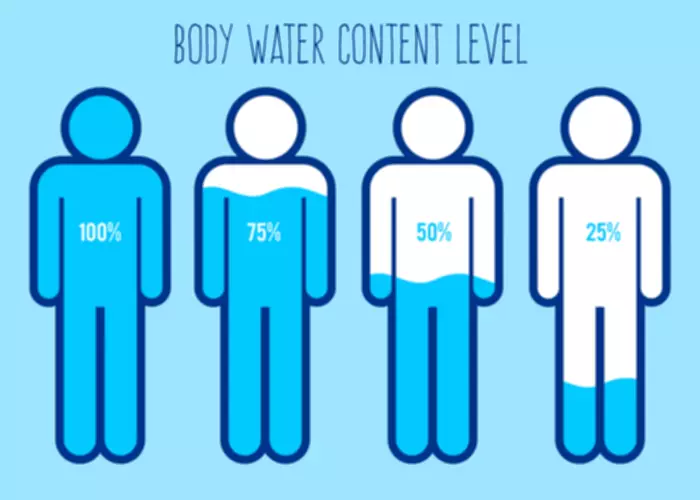
Your loved one needs to be reminded that people care for them and want what’s best for them. Functional alcoholics differ from those who struggle with alcoholism, primarily in how alcohol affects their lives. If you’re the loved one of someone in either group, it’s important to know how to deal with an alcoholic effectively if you want to help them get well. Support groups, such as Alcoholics Anonymous, can play a vital role in maintaining long-term sobriety.
Reasons for denial in alcohol use disorder
- Consequently, many people may not realize their drinking has become a genuine problem.
- It is not surprising that regression analyses in the current data support Hypotheses 2–4, each of which have support in the literature.
- This can provide a space for people to explore the root causes of their addiction, identify triggers, and develop coping mechanisms.
- Recent advances in treatment include integrating psychological and psychiatric interventions into care plans and exploring new pharmacological targets for AUD.
- When your loved one swears to you and to themselves that they will never touch another drop of alcohol, you might believe them.
Encourage open dialogue by letting them know that you are there to listen without judgment. Assure them that they can talk to you honestly and openly without fear of criticism or rejection. Share any fears or consequences you may have observed as a result of their drinking, such as strained relationships, health issues, or problems at work. Help them understand the impact their alcohol use is having on themselves and those around them. For many who struggle with alcohol use disorder, it’s much easier to pretend that the problem doesn’t exist.
Signs of Denial in Alcoholism

All Addiction Resource content is medically reviewed or fact checked to ensure as much factual accuracy as possible. Enabling also creates an environment that fosters co-dependency and negatively impacts appropriate support systems. “When you take steps to heal, it gives everyone permission around you to do the same,” says Spotorno. “Mental health care is critical for achieving long-term success in overcoming AUD,” says Elhaj. Anger and frustration can be tough emotions when supporting someone with AUD. Reminding yourself that you can’t “fix” your loved one — but you can be there for them — can help you cool off, says Elhaj.
When You Stop Enabling Them
Each person has a different experience and insight on their relationship with alcohol. While some may have reached a place of awareness, others may still be trying to understand the seriousness of their condition. There are many factors that can contribute to developing alcohol use disorder, such as stress, trauma, abuse, or any number of other circumstances. People with alcohol use disorder may experience denial, which can delay treatment.
Remember, enabling behaviors often stem from a place of care but can hinder progress toward recovery. It’s essential for loved ones to learn healthier ways to support themselves without perpetuating denial. Unlike substances like heroin or methamphetamines that are widely stigmatized, it’s easier for individuals with an alcohol use disorder to rationalize their behavior due to its social acceptability. By dismissing the issue, they avoid acknowledging that their drinking has become problematic and refuse to engage in meaningful conversations about seeking help or making changes. This behavior can be frustrating for loved ones who are genuinely concerned and trying to offer support.
What if your loved one refuses?
- You may encourage them to call their sponsor, research other treatment options with them such as long-term treatment, or utilize another professional resource.
- People in alcoholic denial aren’t trying to harm others or avoid the consequences of their drinking.
- Reminding yourself that you can’t “fix” your loved one — but you can be there for them — can help you cool off, says Elhaj.
Only by acknowledging there’s an issue can someone begin taking steps toward recovery. It can be seeking professional help, joining support groups like Al-Anon or Alcoholics Anonymous (AA), talking openly about concerns, or alcoholism and denial attending educational programs for those grappling with substance abuse disorders. A professional intervention can be especially beneficial if your loved one is in denial about the extent of their substance use problem.

They might say things like, “Let’s not make a big deal out of it,” or “I just enjoy a few drinks; it’s not like I have an addiction.” Blame involves shifting responsibility https://ecosoberhouse.com/ for their drinking onto external factors. An alcoholic may blame others or situational circumstances rather than take ownership of their behavior.
Research Treatment Options for Alcohol Addiction
Alcoholic denial refers to the defense mechanism used by individuals suffering from alcohol use disorder to rationalize or dismiss their addiction. Some common symptoms of denial include lying about the amount they drink, minimizing the impact of their alcohol use on their life, and rationalizing their addiction as a temporary issue or something they have under control. By identifying these symptoms, you can better understand the challenges that you or a loved one might face when dealing with alcoholic denial. Seeking support for yourself is crucial when dealing with someone who refuses to acknowledge their drinking problem. L about their alcoholism, as it allows you to gain the necessary tools and understanding to navigate this challenging situation.
- When you live with a spouse who has an alcohol use disorder, taking care of yourself is important.
- Alcohol denial can involve lying about how much they drink, when they drink, and how those habits make them feel.
- By Buddy TBuddy T is a writer and founding member of the Online Al-Anon Outreach Committee with decades of experience writing about alcoholism.
- But your persistence and compassion could help the person get critical care.
Supporting a Loved One Struggling with Alcoholism

The consequences of such denial include the progression of the disease and potential harm to personal relationships, professional life, and overall health. Living with someone in active addiction affects every aspect of life—from work to finances, physical well-being to relationships with family and friends. Ignoring or denying the difficult and painful consequences of alcohol addiction will only make things worse. In fact, by the time families reach out for help with a loved one’s alcoholism, the disease may have progressed to a crisis level involving an accident, lost job, arrest or medical emergency. The short-term effects of alcohol abuse can make people prone to violent behavior, injuries and accidents.
